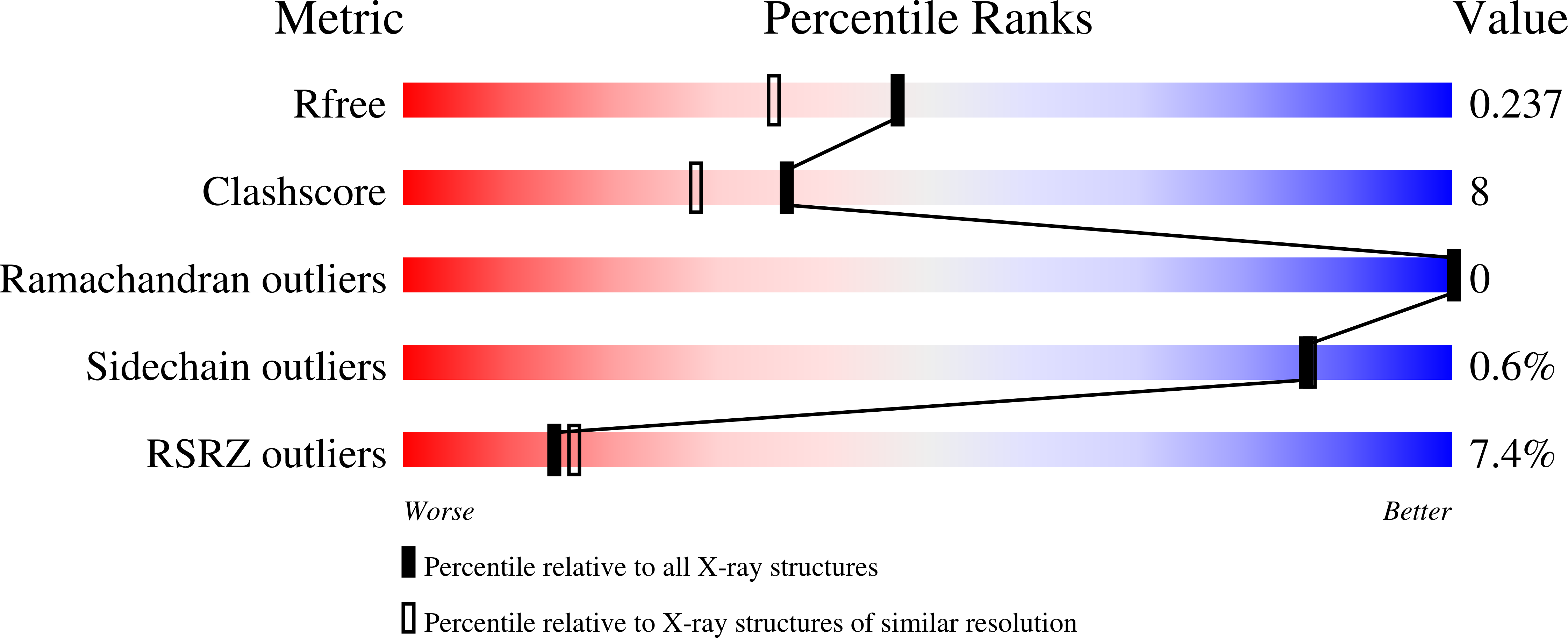Structures of Bir Domains from Human Naip and Ciap2.
Herman, M.D., Moche, M., Flodin, S., Welin, M., Tresaugues, L., Johansson, I., Nilsson, M., Nordlund, P., Nyman, T.(2009) Acta Crystallogr Sect F Struct Biol Cryst Commun 65: 1091
- PubMed: 19923725
- DOI: https://doi.org/10.1107/S1744309109038597
- Primary Citation of Related Structures:
2UVL, 2VM5 - PubMed Abstract:
The inhibitor of apoptosis (IAP) family of proteins contains key modulators of apoptosis and inflammation that interact with caspases through baculovirus IAP-repeat (BIR) domains. Overexpression of IAP proteins frequently occurs in cancer cells, thus counteracting the activated apoptotic program. The IAP proteins have therefore emerged as promising targets for cancer therapy. In this work, X-ray crystallography was used to determine the first structures of BIR domains from human NAIP and cIAP2. Both structures harbour an N-terminal tetrapeptide in the conserved peptide-binding groove. The structures reveal that these two proteins bind the tetrapeptides in a similar mode as do other BIR domains. Detailed interactions are described for the P1'-P4' side chains of the peptide, providing a structural basis for peptide-specific recognition. An arginine side chain in the P3' position reveals favourable interactions with its hydrophobic moiety in the binding pocket, while hydrophobic residues in the P2' and P4' pockets make similar interactions to those seen in other BIR domain-peptide complexes. The structures also reveal how a serine in the P1' position is accommodated in the binding pockets of NAIP and cIAP2. In addition to shedding light on the specificity determinants of these two proteins, the structures should now also provide a framework for future structure-based work targeting these proteins.
Organizational Affiliation:
Department of Medical Biochemistry and Biophysics, Karolinska Institute, Stockholm, Sweden.
















